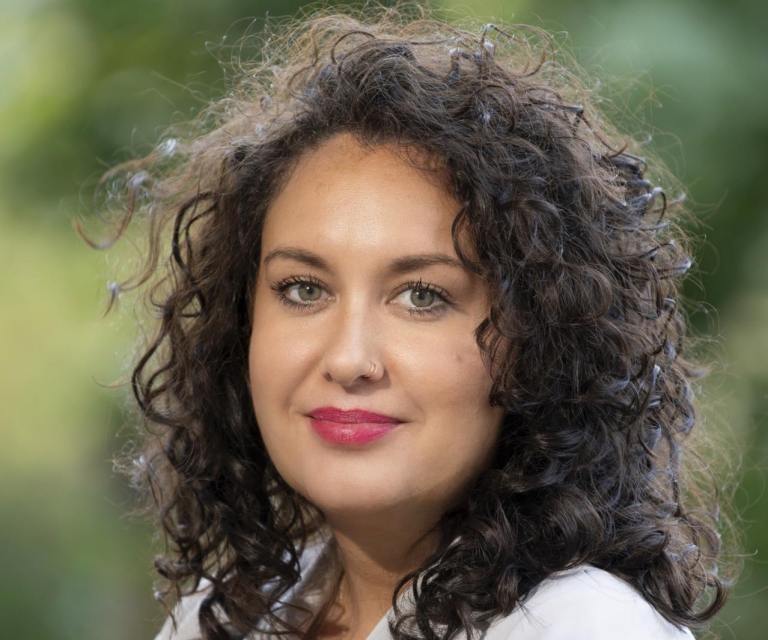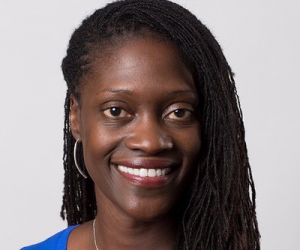
Faculty Member Heather McCambly Receives NAEd/Spencer Postdoctoral Fellowship
Heather McCambly, a faculty member at the University of Pittsburgh School of Education, was selected as a 2023 National Academy of Education (NAEd)/Spencer Postdoctoral Fellow.
McCambly joins 25 early-career scholars selected from a pool of 195 applicants nationwide. The $70,000 fellowships support outstanding researchers at the postdoctoral level who are pursuing education research projects.
As an assistant professor at the Pitt School of Education’s Department of Educational Foundations, Organizations, and Policy, McCambly studies the role of funding organizations in producing and upholding systemic, racial inequalities in higher education.
“This fellowship will provide the opportunity to start the next phase of my work,” McCambly says, noting that her dissertation and recent publications have focused on private and smaller scale federal grantmaking. “Studying folks in power when thinking about how racial inequity continues over time can be hard to get funded. The fellowship not only gives this work a greater platform but provides the time and funding to do it.”
The NAEd/Spencer Foundation Postdoctoral Fellowship will support McCambly’s project, titled “Reversing the Research Lens: Analyzing Turns Toward Racial Equity at IES and NSF.” The project will investigate the funding decisions of the Institute for Education Sciences (IES) and the National Science Foundation’s Education and Human Resources Directorate (NSF-EHRD), two federal agencies that play notable roles in educational research and reform.
Because grant funds can provide institutional prestige and legitimize particular methodological, epistemic, and political research traditions, McCambly says inequitable funding decisions have critical implications in higher education.
“These big research grants can make or break careers, and can determine which faculty members have the funding to train a large lab of graduate students who become future professors,” she says. “We rely on those federal agencies for so many of the projects that are the proving ground for the possible education interventions of tomorrow.”
Using a longitudinal, mixed-methods study, McCambly will explore the evolution of equity commitments and policy designs at IES and NSF-EHRD, as well as the values reflected by the projects they fund. By providing insights and critiques of education-focused grantmaking, McCambly hopes to contribute to shifts toward racial equity within academic and educational policy at large.
“Research funding itself can shape the way we understand what is good research, who does good research, and the type of institution that can support good research,” she says. “These are policies that are changeable because they’re just decision-making processes. If we can shed some light on them, there is a lot of room for potential change and learning, so I’m excited about that.”
In addition to her research, McCambly recently co-edited a new book that provides insights for re-envisioning colleges and universities as transformation spaces for social change. Critiques for Transformation: Reimagining Colleges and Communities for Social Justice (Information Age Publishing, 2023), edited by Lorenzo DuBois Baber and McCambly, features chapters by scholars that identify inequitable or oppressive educational practices and provide recommendations for redeveloping practices that center the well-being and success of minoritized and underserved students.
“We wanted to be explicit in not only offering critiques but also in looking for that spark of transformation,” McCambly says. “‘Each chapter takes that lens of how we can use this research to lead to a better educational future.”
She adds: “It’s powerful to remember that as critical scholars, while we do find the problems, we also need to make space to dream. Pointing out broken systems is important, but helping to build better futures is more important.”
Learn More:
Heather McCambly teaches in the Pitt School of Education’s Department of Educational Foundations, Organizations, and Policy. The programs are now accepting applications.




